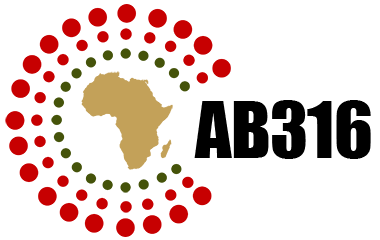It is common for us to think of suffering as a curse. Because we do so, we often think of suffering as the opposite of blessing. However, the Bible teaches us that suffering can function both as a curse and a blessing. While much has been written about suffering being a curse (or think of punishment due sin), I want to explain how suffering is a blessing. In order to demonstrate that suffering is a blessing, I want to explain Romans 5:3-5. Romans 5:3-5 3 Not only that, but we rejoice in our sufferings, knowing that suffering produces endurance, 4 and endurance produces character, and character produces hope, 5 and hope does not put us to shame, because God’s love has been poured into our hearts through the Holy Spirit who has been given to us. Romans 5:3-5 Romans 5 begins by stating that because we have been justified by faith, we have peace and grace from God and rejoice in the hope of the glory of God. Verse three begins with “not only that,” meaning not only do we rejoice in the hope of the glory of God, but because we have been justified by faith, we can also rejoice in our sufferings. Rejoicing in sufferings doesn’t mean that we go around with a smile while we are enduring pain or tribulation. It doesn’t mean that we break one arm and say “thank God I didn’t break both arms”. We can do that. But rejoicing in suffering is more than an external measure. It’s an internal joy. Not a rejoicing at what is happening to us necessarily, but a rejoicing at what it will produce. Suffering Produces Endurance The first thing that suffering produces in endurance. How can suffering produce endurance? Perhaps the best illustration of this is physical exercise, especially running. It is the beginning of the new year and many will be setting resolutions about fitness and cardio health. They will begin to run. As they do so, they will discover that they can run only to a certain point before their body starts to hurt – their lungs burn, their legs feel like rubber – and their brain tells them they should stop. However, we know that many do not stop there. They persevere; they endure. They override what their body and brain are telling them and they keep running. When they do that, a crazy thing happens – they grown in endurance. Slowly, but surely, they can run a little longer than they used to be able to do so. In the same way, when we go through tribulations and trials (isn’t it interesting that Paul doesn’t say “if”, but just assumes suffering will happen?) and instead of stopping or giving into bitterness and complaining, we look to Jesus as our joy and hope, our faith endures. It perseveres. It grows. And we can go just a little further than before. We don’t break. We don’t stop. We endure. But the only way to gain this sort of endurance is to go through the pain that would cause you to look to Jesus. Endurance produces character What is interesting to note here is that […]
I had been in East Africa for only a short time when the principal of our institution spoke these words during a chapel service, “Everyone is talking about claiming the promises of God, but I never hear anyone claim the promise to suffer – that’s a promise; you know?” The students responded with an awkward laugh. They knew the principal was correct; no one was claiming that promise. However, for many of them, it was probably the first time they had ever heard that suffering was a promise. One of the worst exports from America is a damnable heresy known as the Prosperity Gospel. Like most heresies, the Prosperity Gospel takes a truth of Scripture and then twists it to make man the focus. They twist it the truth to appeal to the desires of man. In this case, they teach that God desires for man to be healthy and wealthy…and to keep him from all suffering. Therefore, if you are not healthy and wealthy, or if you are suffering, it is because you do not have enough faith. But this is not exactly what the Bible teaches. While this article will focus on the suffering aspect, this podcast by Dr. David Jones addresses the other aspects. Promised because of Sin The Biblical truth is that we are promised suffering. John 16:33 says “…in this world you will have tribulation…” Suffering is a part of this world. We are promised suffering because we live in a fallen world. Because of Adam and Eve’s sin, the world was subjected to sin (Romans 8:18-22). That means that disease and natural disasters will occur. They will occur for everyone – Christians and non-Christians. In addition to the suffering that comes from the world being corrupted by sin, mankind is also corrupted by sin. Therefore, hate, violence, and oppression exist. A result of man’s fallen state is that we mistreated each other. We cause suffering for one another. Christians and non-Christians alike face this suffering. Sin has corrupted the natural world and humans. Christians and non-Christians face the consequences of this corruption. Sin causes disease, oppression, mistreatment through violence and oppression, and natural disasters. Because this world is fallen, because sin still exists, there will be suffering – for everyone. Promised for Christians However, for Christians, there is an even more specific promise of suffering. There is a promise that we will suffer because we are Christ followers (John 15:18-21). Because the world is fallen and man is trapped in his sin, they hate righteousness. They hate God. They war against God (Romans 5:10, Ephesians 2:1-3, Philippians 3:18) Because they hate God, they hate all associated with God. This is why when God became flesh and dwelt among us, they rejected and murdered him. Because they hate God, they hate all associated with God – including his followers. Since they treated him in such a way, we should expect the same. We will suffer because of our faith. This suffering may present itself in different manners. For the early Christians, and even now for Christians living in certain areas of the world, suffering may […]
Almost fourteen years ago, a terrible tragedy occurred. My wife and I lost our child to a miscarriage. It was the second miscarriage we experienced. It was the second straight pregnancy that ended with a miscarriage. We felt crushed. Friends and family tried to comfort us. Some genuinely did, but others exacerbated the pain. There were many questions and comments made, but the question that sticks out in my mind, the question I can still hear echoing was: “What did you do?” I remember that question hitting me like a ton of bricks. What did we do?? Was this our fault? Are they saying the pain we are experiencing and even the death of our child was our fault? Was God punishing us? What did we do? Those questions are often asked during times of suffering. Often the first thought, even of the ones experiencing the suffering, is “why?” and wondering if it is the result of something they did. Does suffering occur because of our actions? Is it our fault? The simple answer is: yes….and no. Not exactly cleared up, but maybe a little more thorough examination will help. Why does suffering occur? When we answer this question, we begin by stating: suffering is not part of God’s original design. I don’t want to say that it is not his plan, as surely he knew it was coming, but it was not part of creation originally. The Bible tells us that when God had finished creation, he looked at it and saw that it was not only good, but it was very good (Genesis 1:31). Suffering, pain, death – those things were not there. They came when Adam and Eve disobeyed God (Genesis 3:1-4). Their disobedience, the entrance of sin, brought with it death (Genesis 3:3, 19), separation from God (Genesis 3:9-10), curses (Genesis 3:14-19), enmity (Genesis 3:15), pain (Genesis 3:16), struggles in personal relationships (Genesis 3:16), and hard work (Genesis 3:17-18). Sin brought with it suffering. Suffering exists because of sin. If you find yourself asking “but why does God allow it? Why is it necessary?”, you will want to make sure you tune into the third part of this series, but, for now, it’s important to note that the cause of suffering is sin. This is important to keep in mind for a couple reasons. First, it reminds us of the goodness of God. When he created everything, suffering was not present. This is vital to recall when we are going through suffering; the goodness of God is our anchor, our hope, our refuge, and our stay. Second, it reminds us of the wickedness, the heinousness of sin. The consequences of an action, can reveal the severity of the action. The consequences of sin is a separation from God that results in death, pain, and suffering. The Fall corrupted creation (Romans 8:22). Things are not as they are supposed to be. We live in a fallen world. Separation from God exists, therefore, death, pain, and suffering also exist. Suffering exists. That means that the suffering we experience is not always a result of individual decisions (see Mark […]
In July of this year, my wife decided to go to the doctor. She had been tired and not feeling right for weeks. And then a whirlwind hit our family and our lives were flipped upside down. The doctors told my wife she had Leukemia. She was immediately flown from our home in Uganda to Kenya, and then, a few days later, to the United States, where we are currently living. Over the last six months, I’ve watched my wife go through multiple rounds of chemotherapy. I’ve watched a woman who has been healthy her whole life, have her body wrecked with fevers, pain, weakness, and blood vessels bursting. On top of that, I’ve had to pull my sons, already feeling the weight of concern for their mother, from their friends and move them across the world – as we remain stranded from our home and ministry in Uganda, in a state of limbo, not knowing for how long or what the outcome will be. All the while, I sit – able to observe, but powerless to change any of these circumstances. On that hand, it has not been a great six months. But, on the other hand, it has been a great six months. I’ve seen the Church, local and global, act like the Church by grieving with us, but also by encouraging us with prayer and provisions. I’ve seen my wife, my sons, and myself grow more fervent (and frequent) in our prayers to, and dependence upon, God. I’ve watched my wife suffer well and be an encouragement to others. God has taken this horrible curse and made it a blessing. As I have walked through these last six months, I have spent a lot of time thinking about suffering. I don’t have to tell you about suffering. You know about it. You’ve experienced it. You’ve felt the hunger, fought the sickness, held the dying, and wept with the heartbroken and discouraged. You’ve even been the heartbroken and discouraged. We all know suffering exists. The questions are “why?” and “for what purpose?”. Many answers to these questions have been given. I am convinced that the answers most frequently being given are often the least Biblical answers that we could give. Therefore, I want to try to explain a Biblical perspective on suffering. I want to give a primer on suffering. This series will consist of four parts: Part 1: The Reason for Suffering Part 2: The Promise of Suffering Part 3: The Blessing of Suffering Part 4: The Faith to Suffer I hope that you will read along.
Do not owe anyone anything, except to love one another, for the one who loves another has fulfilled the law. (Romans 13:8) “Teacher, which command in the law is the greatest?” He said to him, “Love the Lord your God with all your heart, with all your soul, and with all your mind. This is the greatest and most important command. The second is like it: Love your neighbor as yourself. All the Law and the Prophets depend on these two commands.” (Matthew 22: 36-40) Levels of Christian Maturity: When we come to Christ as Savior and Lord, we begin a journey where we are to obey and follow Him for the rest of our lives. There are different stages of growth in our Christian walk; unfortunately, we tend to get stuck on one plateau or another. I believe that the depth of our Christian commitment can be demonstrated by the kinds of questions we are asking. When we initially come to Christ, most of our focus is on the “what?” questions. What does the bible teach? What am I supposed to do? What does God require of me? We spend a lot of time learning and figuring out what it means to be a believer and “what” the bible teaches. Basically, we have a “just give me the facts” approach where we desire to know the rules and the protocols of being a Christian. When someone becomes more mature and goes deeper theologically, they might also start asking the “how?” questions. Yes, I need to be baptized (the what), but the Scripture teaches I need to be baptized by immersion (the how). We realize as we grow that God desires us to do the right things the right way. For example, we should pray (what) in Jesus’ name (how). We should give our tithes and offerings (what), but we have to give cheerfully and liberally (how). Asking what we must do to serve Him and ensuring we are doing those things God’s way is essential. Yet, there is a third question, and it is probably the most important one. This is the question of “why?” Unfortunately, this is the question that few of us ask, which keeps us immature instead of going on to greater heights with Jesus. The “why?” question is what separates a Pharisee from a devoted disciple of Jesus. It takes a good bit of biblical and theological knowledge to answer the “what” and the “how.” We cannot negate the importance of what and how. However, if you know what to do and how to do it but you have the wrong motives, then you are like the Pharisees who had the correct information but the wrong motivation. Legalists who focus so much on doing the right thing the right way without examining their own heart tend to become unteachable and unpliable. The new Christian is at least open to learning, and open hearts are required for sanctification. A Love Relationship or a Transactional Relationship? When we consider the issue of motives, that is where the rubber meets the road in our Christian walk. The more […]
Many of us expect the blessings of family, marriage, and children from God as a reward for our faithful service to Him. Yet our eyes turn to the words of God to Jeremiah and we see that when we serve God, sometimes we must break culture.
One of the most challenging things for all of us called to teach and preach God’s Word is to learn to silence our biases and cultural expectations sufficiently to see what the Word actually says rather than what we expect it or want it to say. Here are three common hermeneutical and homiletical traits of the charismatic/pentecostalized tradition to recognize in order to move toward a more biblically-grounded homiletic.
To evaluate our practice of prayer, consider these five things: 3 “Dont’s” and 2 “Do’s”.





